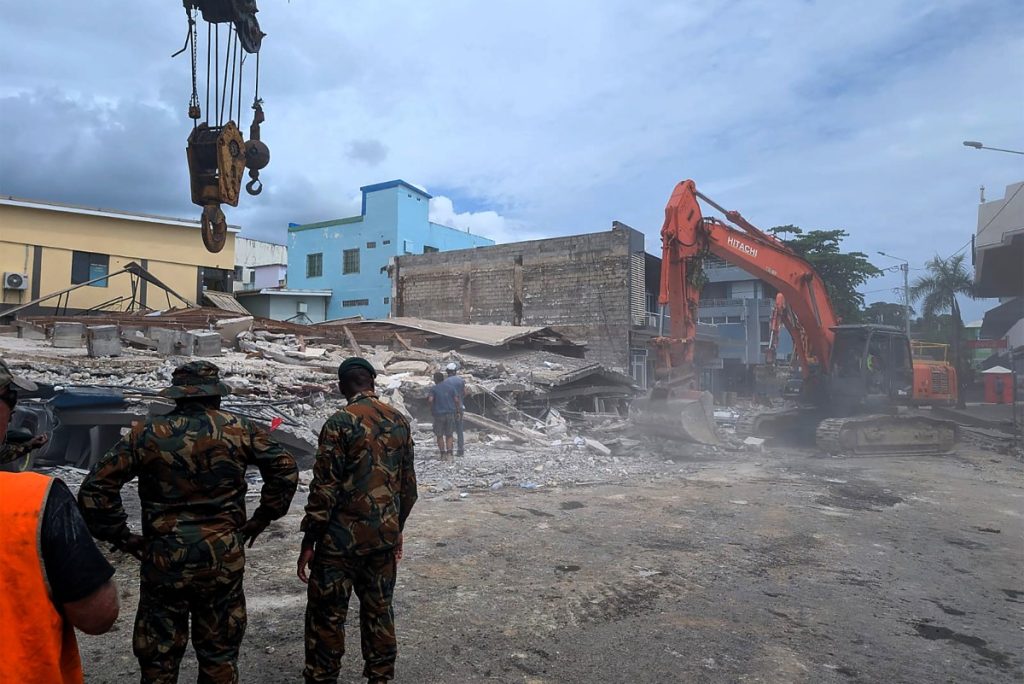International rescue teams arrived in Vanuatu on Thursday to assist with the survivors of a devastating earthquake that has claimed nine lives, with the death toll expected to rise.
The 7.3-magnitude quake struck on Tuesday near the Pacific nation’s main island, toppling multi-story buildings, cracking infrastructure, and damaging essential utilities such as water supplies and mobile networks. Many individuals are feared trapped beneath the debris of collapsed structures.
Over 100 rescue personnel, equipped with search dogs, specialised gear, and emergency aid, were flown into the capital, Port Vila, aboard military transport planes from Australia and New Zealand.

Vanuatu has declared a seven-day state of emergency, including a curfew from 6 p.m. to 6 a.m., as aftershocks continue to rattle the island chain of 320,000 people located within the seismically active Pacific Rim of Fire.
Australian authorities dispatched a 64-member disaster response team, including two search dogs, medics, police officers, and emergency managers. Foreign Minister Penny Wong confirmed that a government-organised flight also evacuated 148 Australian nationals.
Meanwhile, New Zealand deployed 37 personnel, primarily search-and-rescue experts, alongside an additional team of 18 arriving with a C-130 military transport plane loaded with rescue equipment and disaster relief supplies.
Among the confirmed victims are two Chinese nationals and one French citizen, according to statements from their respective embassies.
The earthquake inflicted significant structural damage on more than 10 buildings, including Vanuatu’s main hospital. Three bridges, power lines, water storage systems, and mobile communications infrastructure were also severely impacted. A major landslide has forced the closure of the shipping port, while Port Vila’s airport runway has been deemed operational by French engineers, though commercial flights remain suspended.
Vanuatu, heavily reliant on tourism and agriculture for its economy, faces further challenges. Landslides have blocked airfields on nearby islands, raising fears of food shortages. Emergency doctor Basil Leodoro, working with Respond Global, reported that water supplies, including wells and storage facilities, were damaged on several islands. Injuries, however, have so far been reported only on the main island.
Dr. Leodoro is coordinating medical support from Fiji and the Solomon Islands to relieve overstretched local teams. As rescue efforts intensify, the resilient spirit of Vanuatu’s people shines through, with civilians joining emergency crews to help their communities rebuild amidst ongoing adversity.


